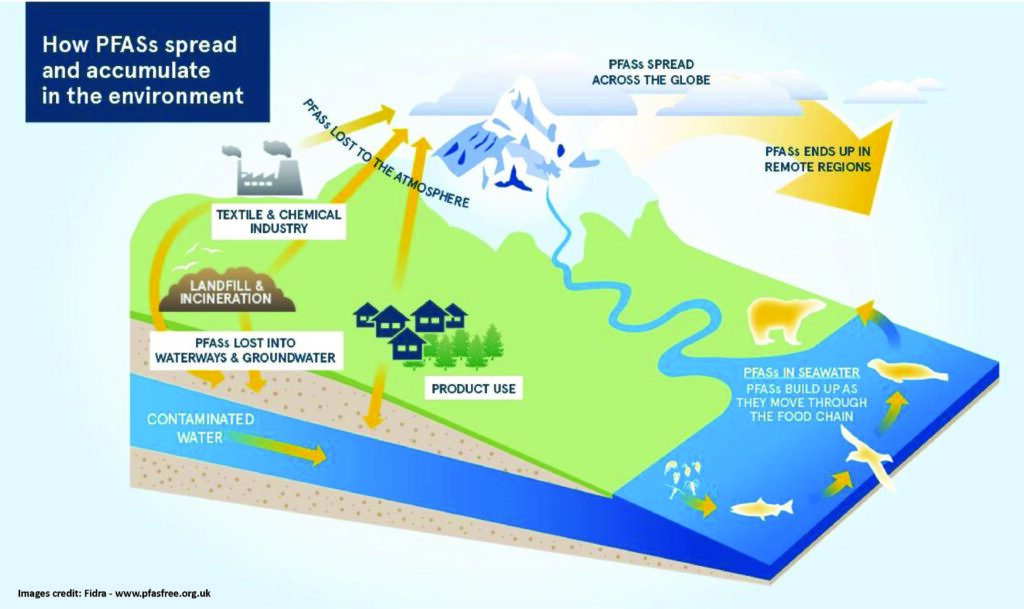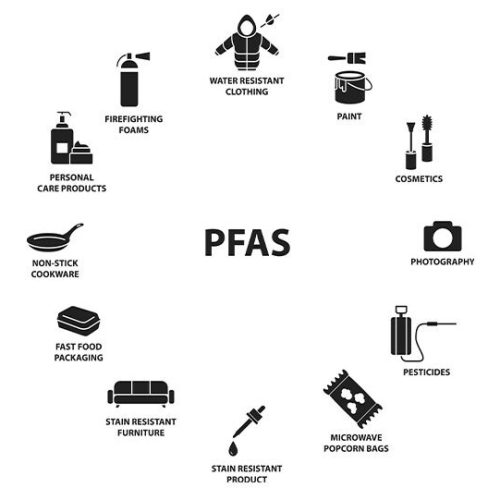The Why
Establishing a global standard and certification for products containing hazardous PFAS chemicals is crucial – transcending national borders and encompassing not only Australia but the entire world. Despite the phased-out status of notorious PFAS compounds such as PFOA (the Teflon chemical) and PFOS (found in 3M’s Scotchgard) in the U.S. due to environmental hazards, these products persist in items imported to Australia.
It is imperative that steps are taken to safeguard against these persistent “forever chemicals” and that those safeguards address both environmental and human health concerns. Various studies have unequivocally linked PFAS chemicals, including PFOA and PFOS, to severe health conditions such as testicular, kidney, liver, and pancreatic cancers. Additionally, the detrimental health effects encompass reproductive problems, weakened childhood immunity, low birth weight, endocrine disruption, increased cholesterol, and weight gain in both children and adults on restricted diets.
While long-chain PFAS chemicals were phased-out, their short-chain replacements, touted as safer by chemical companies, have sparked significant concerns. Extensive research indicates that these short-chain variants may pose even worse risks than their predecessors, underscoring the hazardous nature of the entire PFAS class.


A worrisome trend in Australia involves certain industry groups and non-profit organizations treating the PFAS issue solely as an environmental problem, disregarding the profound human health implications associated with PFAS exposure. The extensive impacts on human health are highlighted by a recent European analysis estimating annual direct healthcare expenditures related to PFAS exposure at €52–84 billion, with equivalent health-related costs for the United States ranging from $37–59 billion annually. Notably, these costs are not borne by the companies producing or selling these products but are shouldered by ordinary people, healthcare providers, and taxpayers. Recognizing the dual environmental and human health risks underscores the urgent need for a global standard to address the pervasive use of PFAS in products worldwide.
An alarming issue in Australia pertains to the greenwashing of composting standards by packaging companies. Many claim compostability without considering the presence of added PFAS in the manufacturing process. Consequently, composted PFAS-laden products introduce harmful chemicals into the soil, perpetuating environmental contamination. This deceptive practice undermines the integrity of composting initiatives, emphasizing the need for stringent standards accounting for the entire lifecycle of products, including manufacturing processes.
The ongoing dissemination of PFAS through misleading composting standards emphasizes the necessity for a comprehensive global approach, not only in mitigating health risks but also in addressing the environmental impact of PFAS-contaminated products throughout their entire lifecycle.

